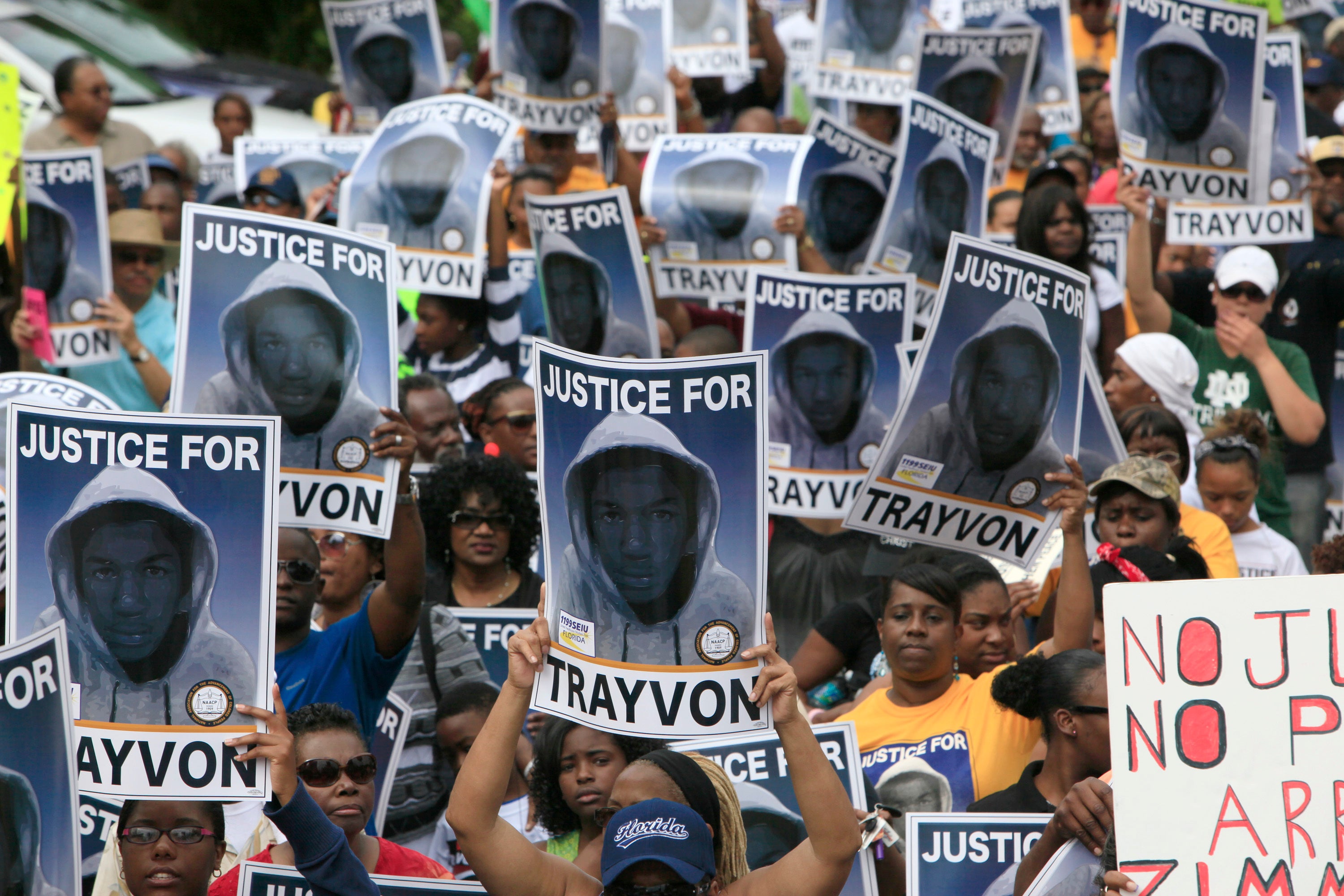Trayvon Martin 10th anniversary: A look at the players
Trayvon Martin was visiting his father in Sanford, Florida, when the 17-year-old Black teen was fatally shot Feb. 26, 2012, during a confrontation with George Zimmerman

Trayvon Martin was visiting his father in Sanford, Florida, when the 17-year-old Black teen was fatally shot Feb. 26, 2012, during a confrontation with George Zimmerman, a neighborhood watch volunteer. Zimmerman claimed self-defense and was later acquitted during a jury trial. Martin was unarmed. His death fueled the rise of the Black Lives Matter movement just a couple years later.
An update on what has happened to the people involved in that tragedy over the past decade:
TRAYVON MARTIN
Martin's name is now mentioned in the same breath as others whose violent deaths have refocused attention on race and justice in the U.S. over the past decade: Michael Brown, Eric Garner, Tamir Rice, Freddie Gray, Breonna Taylor, George Floyd. Martin's death and subsequent protests lit the spark that eventually grew to become the social justice movement Black Lives Matter. His legacy is compared to that of Emmett Till, the Chicago teen whose lynching in Mississippi in 1955 stoked the civil rights movement.
GEORGE ZIMMERMAN
Since being acquitted of second-degree murder in 2013, Zimmerman has had regular run-ins with the law, though none of the charges have stuck because of a lack of cooperation from those who reported him. The allegations have included that he pointed a gun at his then-girlfriend, threw a wine bottle at another girlfriend and smashed his estranged wife's iPad. In 2018, he was issued a summons for misdemeanor stalking for allegedly threatening an investigator who was helping with a documentary on Martin. Two years ago, Zimmerman sued Martin's family and family attorney, claiming defamation. The lawsuit was dismissed earlier this year. In the years after his trial, Zimmerman tried to auction off the gun used in the killing and sold Confederate flag art he made online. In court papers, he says he has been regularly subjected to death threats, has had to move to protect himself and has had trouble finding employment.
BEN CRUMP
In the decade since Martin's killing, Crump, who represented the teen's family, has gone from being a Florida lawyer little known outside of the state to becoming America's most famous social-justice attorney. He has represented families whose relatives have died at the hands of law enforcement or vigilantes, including Michael Brown, Breonna Taylor and George Floyd. Crump has won multimillion-dollar settlements in police brutality cases, stood with Black farmers taking on an agribusiness giant and represented families exposed to lead-contaminated water in Flint, Michigan. Last year, the Rev. Al Sharpton called Crump “Black America’s attorney general.”
SYBRINA FULTON
Trayvon Martin's mother, a former county government worker, was thrust into the spotlight following her son's death, becoming an activist against gun violence and over the years becoming a leader in the racial justice movement and a candidate for public office. Fulton and Trayvon’s father, Tracy Martin, also formed a foundation that supports families affected by gun violence and promotes education. In the course of her activism, Fulton became a matriarch of the Black Lives Matter movement. In the summer of 2020, following a wave of racial justice protests, she ran for a seat on the Miami-Dade County Commission and won the endorsements of former U.S. Secretary of State Hillary Rodham Clinton and U.S. Sen. Cory Booker. She lost to a former Miami Gardens mayor by about 420 votes.
ANGELA COREY and BERNIE DE LA RIONDA
When Sanford police didn't charge Zimmerman for a month, and the local prosecutor recused himself from the case, then-Florida Gov. Rick Scott named Angela Corey as a special prosecutor for the case. The State Attorney from Jacksonville, a conservative Republican, indicted Zimmerman on charges including second-degree murder, and had her deputy, Bernie de la Rionda, lead the courtroom prosecution. After Zimmerman's acquittal, Corey returned to Jacksonville and was voted out of office in 2016, following several other controversial cases, including one in which she sought a 60-year prison sentence for a woman who fired a shot in the direction of her abusive husband and another in which she charged a 12-year-old as an adult on a first-degree murder charge. De la Rionda retired from the office in 2018.
MARK O'MARA
Along with defense attorney Don West, O'Mara successfully argued that Zimmerman acted in self-defense. Since the case, O'Mara has been a CNN legal analyst, a regular commentator on Court TV, a frequent writer about legal cases for the Orlando Sentinel and has served as president of a national trial lawyers organization, all the while working as a defense attorney in central Florida. In 2020, O’Mara took on a role in another case of a Black teen killed in Sanford — this time representing the family of the teen, who had been fatally shot by a homeowner during what police said was a burglary. Prosecutors said the shooting was justified and declined to press charges.
CITY OF SANFORD
The small city north of Orlando had a history of racial tensions even before Martin's killing. When local police didn't charge Zimmerman right away, thousands of protesters filled the streets. In the decade since Martin's death, the city has tried to address its racial conflicts. Last year, city commissioners agreed to form an advisory committee to study how race, class and gender can lead to social inequities. The 15-member “Race, Equality, Equity and Inclusion” group has been charged with making recommendations on how to eliminate inequities in Sanford.
___
Follow Mike Schneider on Twitter at https://twitter.com/MikeSchneiderAP
Bookmark popover
Removed from bookmarks